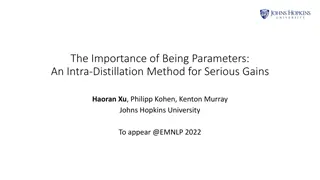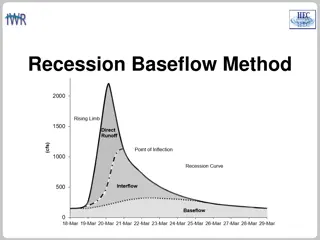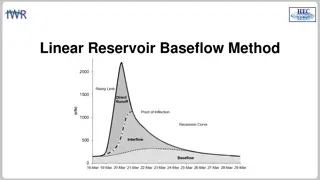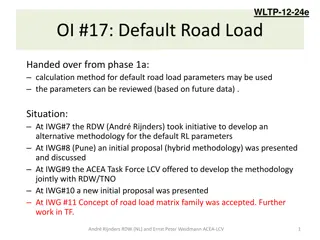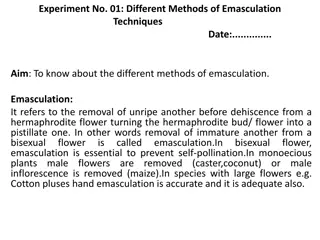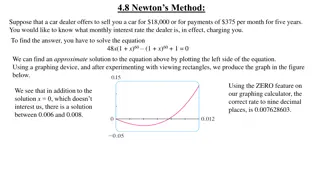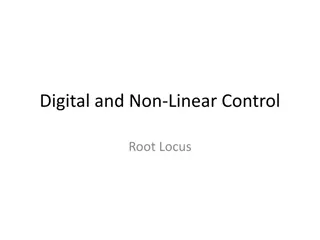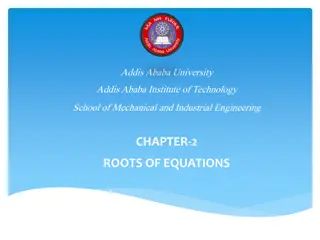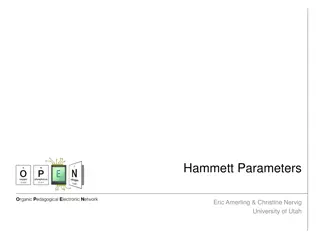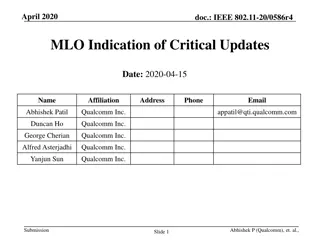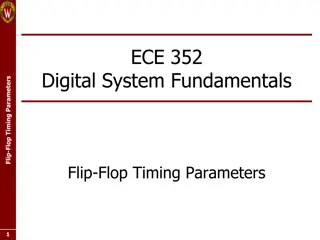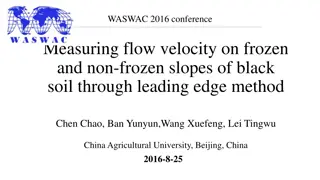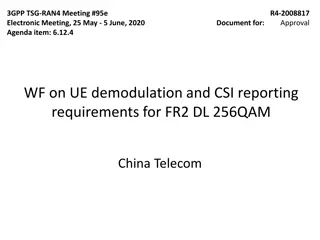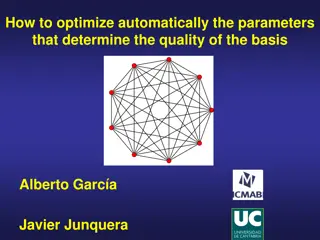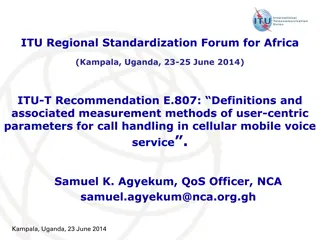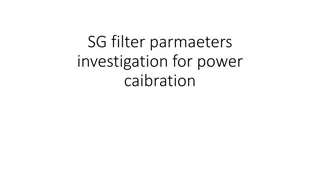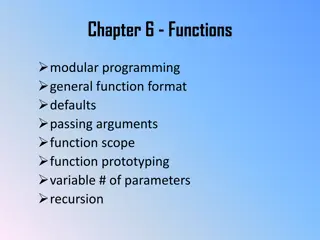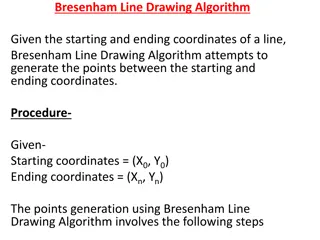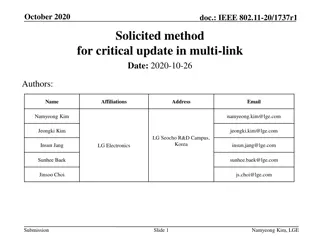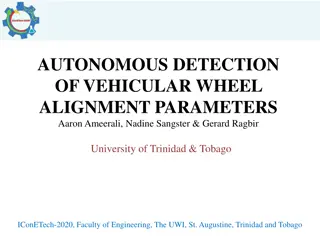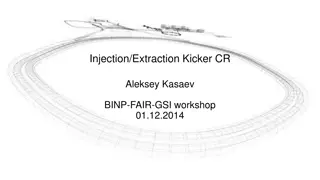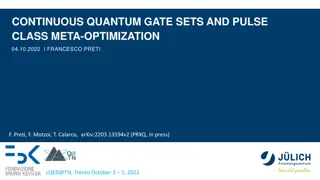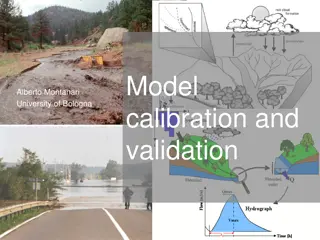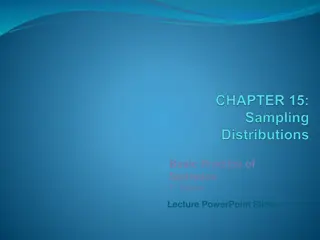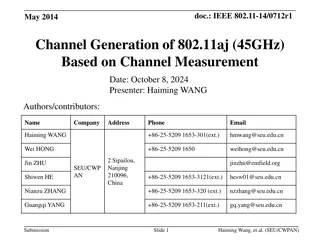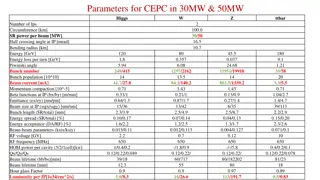Language Teaching Techniques: GTM, Direct Method & Audio-Lingual Method
Explore the Grammar-Translation Method, Direct Method, and Audio-Lingual Method in language teaching. Understand principles, objectives, and methodologies with insights into language learning approaches. Enhance teaching skills and foster effective communication in language education.
3 views • 82 slides
Intra-Distillation for Parameter Optimization
Explore the concept of parameter contribution in machine learning models and discuss the importance of balancing parameters for optimal performance. Introduce an intra-distillation method to train and utilize potentially redundant parameters effectively. A case study on knowledge distillation illust
8 views • 31 slides
Understanding the Recession Baseflow Method in Hydrology
Recession Baseflow Method is a technique used in hydrology to model hydrographs' recession curve. This method involves parameters like Initial Discharge, Recession Constant, and Threshold for baseflow. By analyzing different recession constants and threshold types such as Ratio to Peak, one can effe
0 views • 8 slides
Understanding Linear Reservoir Baseflow Method
The linear reservoir baseflow method utilizes linear reservoirs to simulate the movement of water infiltrated into the soil. This method models water movement from the land surface to the stream network by integrating a linear relationship between storage and discharge. Users can select from one, tw
0 views • 11 slides
- Development of Alternative Methodology for Default Road Load Parameters in Vehicle Testing
- The initiative to develop an alternative methodology for default road load parameters in vehicle testing was led by RDW and ACEA. The process involved multiple meetings, discussions, and proposals, resulting in the acceptance of the concept of a road load matrix family. Various x-factors were adop
2 views • 22 slides
Understanding Different Emasculation Techniques in Plant Breeding
Learn about the significance of emasculation in plant breeding to prevent self-pollination and facilitate controlled pollination. Explore various methods such as hand emasculation, forced open method, clipping method, emasculation with hot/cold water, alcohol, suction method, chemical emasculation,
2 views • 10 slides
Understanding Newton's Method for Solving Equations
Newton's Method, also known as the Newton-Raphson method, is a powerful tool for approximating roots of equations. By iteratively improving initial guesses using tangent lines, this method converges towards accurate solutions. This method plays a crucial role in modern calculators and computers for
0 views • 12 slides
Understanding Root Locus Method in Control Systems
The root locus method in control systems involves tracing the path of roots of the characteristic equation in the s-plane as a system parameter varies. This technique simplifies the analysis of closed-loop stability by plotting the roots for different parameter values. With the root locus method, de
0 views • 41 slides
Understanding the Conjugate Beam Method in Structural Analysis
The Conjugate Beam Method is a powerful technique in structural engineering, derived from moment-area theorems and statical procedures. By applying an equivalent load magnitude to the beam, the method allows for the analysis of deflections and rotations in a more straightforward manner. This article
1 views • 11 slides
Understanding Roots of Equations in Engineering: Methods and Techniques
Roots of equations are values of x where f(x) = 0. This chapter explores various techniques to find roots, such as graphical methods, bisection method, false position method, fixed-point iteration, Newton-Raphson method, and secant method. Graphical techniques provide rough estimates, while numerica
0 views • 13 slides
Understanding Hammett Parameters in Organic Chemistry
The Hammett Parameters analysis, particularly the Hammett Plot, is a valuable tool in studying the electronic effects of substituents on aromatic systems. This linear free-energy relationship approach aids in optimizing reaction conditions and probing reaction mechanisms. Applications of Hammett Par
0 views • 8 slides
IEEE 802.11-20/0586r4 MLO Indication of Critical Updates
The document discusses the need for a mechanism in the MLO framework to enable non-AP MLDs to receive updates to operational parameters without monitoring all links. It proposes that each AP of an MLD should provide an indication of updates to another AP's operational parameters. It also outlines ho
0 views • 17 slides
Understanding Flip-Flop Timing Parameters in Digital Systems
In digital systems, flip-flop timing parameters are crucial for proper operation. Synchronous inputs must remain stable before and after the clock edge to ensure correct storage of values. Clock frequency, setup time, hold time, and propagation delay play key roles in signal integrity. By considerin
0 views • 9 slides
Determination of Dipole Moment in Chemistry
The determination of dipole moment in chemistry involves methods such as the Temperature Method (Vapour Density Method) and Refractivity Method. These methods rely on measuring various parameters like dielectric constants and polarizations at different temperatures to calculate the dipole moment of
1 views • 15 slides
Optimizing Glycoprofiling Analytical Method for Therapeutic Proteins
Glycoproteins play a significant role in biopharmaceuticals, necessitating detailed characterization due to their structural heterogeneity from glycosylation. This study focuses on developing a robust and cost-effective characterization method using a Definitive Screening Design to optimize an HPAE-
0 views • 13 slides
Experimental Method for Measuring Oxygen Production in Green Plants
The reporter proposed an experimental method to measure oxygen production by an aquatic plant, highlighting the process and outcomes. While there were detailed explanations on photosynthesis, the report lacked essential elements such as explaining the choice of plant and the source of carbon dioxide
1 views • 5 slides
Measurement of Flow Velocity on Frozen and Non-Frozen Slopes of Black Soil Using Leading Edge Method
This study presented a detailed methodology for measuring flow velocity on frozen and non-frozen slopes of black soil, focusing on the Leading Edge method. The significance of shallow water flow velocity in soil erosion processes was emphasized. Various methods for measuring flow velocity were compa
0 views • 23 slides
Building Engineering Systems Overview
Explore the standards, requirements, and parameters for building engineering systems, focusing on indoor microclimate conditions, energy efficiency, and optimal parameters for different seasons. Learn about European and Lithuanian standards, as well as specific parameters for school classrooms. Refe
0 views • 8 slides
PDSCH Demodulation Parameters & Requirements Discussion
This document covers the discussion on PDSCH demodulation parameters and requirements for UE demodulation and CSI reporting in FR2 DL 256QAM, specifically focusing on static channel mode, TDL-D channel mode, and TDL-A channel mode. The document also explores rank options, channel bandwidth, PRB allo
0 views • 9 slides
Automatic Optimization of Basis Set Parameters for Enhanced Quality
Learn how to automatically optimize the parameters that define the quality of the basis set with the Simplex code, as detailed by Alberto García Javier Junquera. This process involves compiling the Simplex code, preparing the necessary input files, creating a directory for running the optimization
0 views • 11 slides
User-Centric Parameters for Call Handling in Cellular Mobile Voice Service
The ITU Regional Standardization Forum for Africa held in Kampala, Uganda in June 2014 introduced ITU-T Recommendation E.807, focusing on the definitions and measurement methods of user-centric parameters for call handling in cellular mobile voice service. The recommendation outlines five key parame
1 views • 15 slides
Optimizing SG Filter Parameters for Power Calibration in Experimental Setup
In this investigation, the aim is to find the optimal SG filter parameters to minimize uncertainty in power calibration while avoiding overfitting. Analyzing power calibration measurements and applying SG filter techniques, the process involves comparing different parameters to enhance filter perfor
0 views • 21 slides
Understanding Functions in Modular Programming
Functions in modular programming allow for hierarchical decomposition of problems into smaller tasks, with interfaces defining input parameters and output. Each function operates independently, following a specific structure for headers, parameters, and return statements. Proper function prototyping
0 views • 27 slides
Bresenham Line Drawing Algorithm Explained with Examples
Bresenham Line Drawing Algorithm is a method used to generate points between starting and ending coordinates to draw lines efficiently. This algorithm involves calculating parameters, decision parameters, and iteratively finding points along the line. Two example problems are provided with step-by-s
0 views • 8 slides
Understanding Biomarkers and Maturity Parameters in Petroleum Exploration
Biomarkers and maturity parameters play crucial roles in characterizing source materials and assessing the thermal maturity of organic matter in petroleum exploration. Specific biomarkers and non-biomarker maturity parameters are utilized to determine the relative maturity of source rocks and oils.
0 views • 17 slides
Solicited Method for Critical Update in Multi-Link Environments
This document discusses a method for obtaining critical update information for Access Points (APs) within the same Multi-Link Domain (MLD) in IEEE 802.11 standards. It introduces the concept of Change Sequence fields in Beacon and Probe Response frames to indicate changes in system information for o
0 views • 18 slides
Autonomous Detection of Vehicular Wheel Alignment Parameters
This research focuses on the autonomous detection of vehicular wheel alignment parameters conducted by Aaron Ameerali, Nadine Sangster, and Gerard Ragbir at the University of Trinidad & Tobago. The study addresses the importance of wheel alignment for proper road contact and maintenance, discussing
0 views • 19 slides
Maximum Likelihood Estimation in Statistics
In the field of statistics, Maximum Likelihood Estimation (MLE) is a crucial method for estimating the parameters of a statistical model. The process involves finding the values of parameters that maximize the likelihood function based on observed data. This summary covers the concept of MLE, how to
0 views • 19 slides
Understanding Water Quality Parameters and Characteristics
Water quality encompasses physical, chemical, and biological characteristics that determine its suitability for various uses. Physical parameters like turbidity, taste, odor, color, and temperature affect sensory perception. Chemical parameters such as pH, acidity, alkalinity, and hardness relate to
0 views • 26 slides
Analysis of Bunch Lengthening in CEPC for Different Design Parameters
This study explores bunch lengthening in the Circular Electron Positron Collider (CEPC) for various design parameters, analyzing a 54 km design scheme, a 61 km design scheme, and a 100 km design scheme. The analysis includes the theoretical framework used, equations for bunch lengthening, and conclu
1 views • 15 slides
Magnetic Field Calculation and Parameters for Injection/Extraction Kicker CR
This document provides detailed information on the injection/extraction kicker CR used by Aleksey Kasaev at the BINP-FAIR-GSI workshop in 2014. It includes main parameters of the kicker, magnetic field calculations, ferrite parameters, magnetic field distribution, and time cycles of operation. Addit
0 views • 11 slides
Optimizing Continuous Quantum Control with Variable Parameters
The research delves into solving quantum optimal control problems with versatile system parameters through robust and analytical approaches. It explores optimizing figures of merit in quantum systems with varying Hamiltonian and pulse parameters, showcasing solutions for single-qubit and two-qubit s
0 views • 18 slides
Understanding the Importance of Calibration in Hydrological Modeling
Hydrological models require calibration to adjust parameters for better representation of real-world processes, as they are conceptual and parameters are not physically measurable. Calibration involves manual trial and error or automatic optimization algorithms to improve model accuracy. Objective f
0 views • 12 slides
Understanding Parameters, Statistics, and Statistical Estimation in Statistics
In statistics, we differentiate between parameters and statistics, where parameters describe populations and statistics describe samples. Statistical estimation involves drawing conclusions about populations based on sample data. The Law of Large Numbers explains the relationship between sample stat
0 views • 12 slides
CEPC Main Ring Double Ring Scheme Lattice Design
Lattice design and parameters for the double ring scheme of the Circular Electron Positron Collider (CEPC) main ring discussed at the CEPC AP meeting in January 2016. The outline covers the CEPC parameters for C=100km, including the lattice design and geometry for different regions. Details on energ
0 views • 14 slides
Understanding the Shoe Lace Method for Finding Polygon Areas
The Shoe Lace Method is a mathematical process used to determine the area of any polygon by employing coordinate geometry. By following specific steps, including organizing coordinates, multiplying diagonally, and adding columns in a certain manner, the method allows for a straightforward calculatio
0 views • 8 slides
Channel Generation Process for IEEE 802.11aj (45GHz) Based on Channel Measurement
This presentation by Haiming Wang and team from SEU/CWPAN discusses the process of channel realization and generation in the 45 GHz bandwidth. It covers the generation of the channel impulse response, modeling of parameters, statistical measurements, and future work related to the 802.11ad standard.
0 views • 27 slides
Understanding Speckle Tracking Echocardiography Basics
Speckle tracking echocardiography is a method analyzing speckle artifacts in ultrasound images to obtain information on myocardial motion and deformation. By tracking speckles in the ventricle wall, parameters like motion displacement, velocity, strain, and strain rate can be measured. Deformation c
1 views • 12 slides
Parameters and Results for CEPC in 30MW & 50MW
Parameters and results for the Circular Electron Positron Collider (CEPC) operating at 30MW and 50MW including information on the Higgs, W, Z, and ttbar processes. The data covers various aspects such as the number of IPs, circumference, power per beam, bending radius, energy, beam properties, beam-
0 views • 7 slides
Understanding Transport Layer Parameters and Examples
This content delves into the important parameters associated with the transport layer, such as the number of lanes per converter device, the number of converters per device, and the number of octets per frame. It provides examples of how these parameters are configured in different scenarios, showca
0 views • 8 slides

